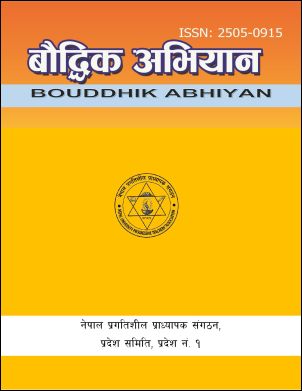COVID -19 Crisis and Alternative Learning: School Stakeholders' Perceptions
DOI:
https://doi.org/10.3126/bdkan.v7i1.47563Keywords:
COVID-19 pandemic, ICT, online learning, access, community-based mobile teachingAbstract
This paper reports on an analysis of stakeholders’ perceptions of online learning for school students in Nepal. It utilised online semi-structured interview with 13 stakeholders from a municipality, two schools, and a community campus to gather qualitative data. The content analysis of various archived documents provided a ground for data analysis. This research paper reports of perceived value of online learning in the COVID-19 pandemic, opportunities for transforming the conventional physical classroom to the online mode of learning and challenges to switch to online learning in rural Nepal. It further reports on how teachers in rural areas explored community-based mobile teaching as an alternative mode of learning where there was lack of ICT infrastructures. Teachers’ lack of e-based teaching experience, limited ICT knowledge and skills, and lack of digital devices feared them to adopt the online mode of learning. Had the government and rural schools developed minimum ICT infrastructure, trained teachers to use ICT facilities and provided necessary support to students, rural students would have been able to access online education in the crisis.




